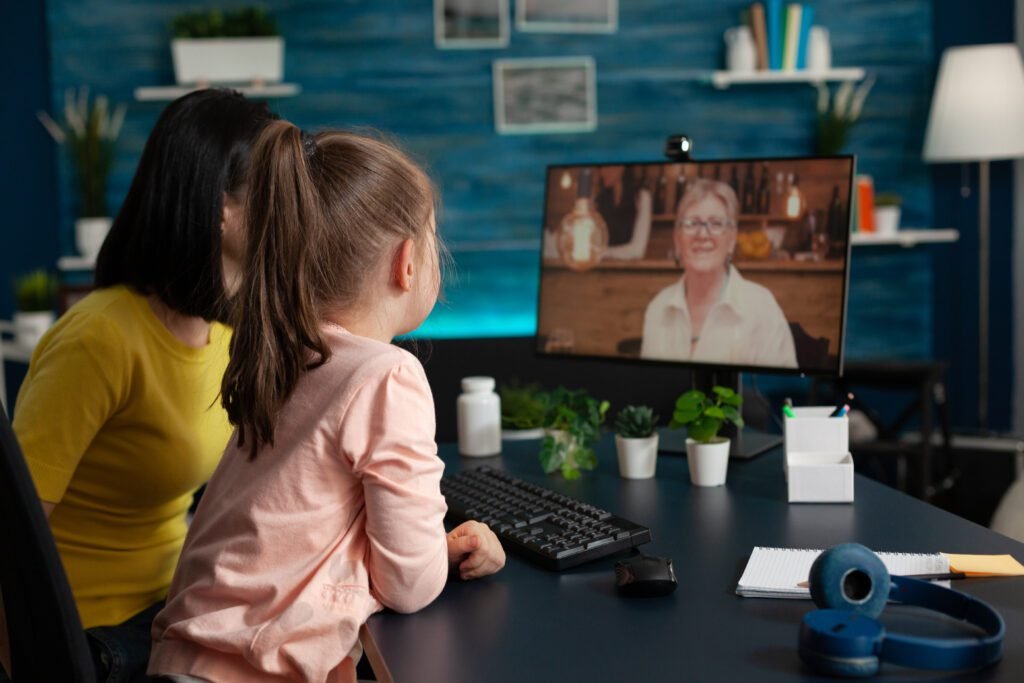School anxiety is becoming increasingly common among children and adolescents. Academic pressure, social expectations, and transitions between learning environments can all contribute to rising stress levels. While some children manage occasional worries, others experience intense fear that leads to absenteeism, poor concentration, or emotional withdrawal. Parents often struggle to find the right support, especially when in-person counseling is not easily accessible. This is where telehealth sessions have emerged as an effective option, giving families timely guidance and children a safe space to manage their concerns.
Understanding School Anxiety in Children and Teens
School-related anxiety can show up in different ways depending on the child’s age and personality. Younger children may complain of stomachaches before school, while teenagers might isolate themselves or avoid homework. At its core, school anxiety is an emotional response to perceived challenges, such as academic performance, peer relationships, or fear of judgment. Left unaddressed, these worries can affect learning outcomes, mental health, and even physical well-being.
Common Triggers Behind School Anxiety
Several factors may contribute to why a child develops school-related anxiety:
- Pressure to achieve high grades
- Fear of making mistakes or disappointing parents and teachers
- Bullying or exclusion by peers
- Learning difficulties or undiagnosed conditions
- Transitioning to a new school or grade level
- Uncertainty from sudden changes, such as remote learning
Recognizing these triggers is the first step toward helping a child regain confidence in the school environment.
Signs Parents Should Watch For
Children and teens often struggle to express their worries directly. Instead, anxiety may appear in physical or behavioral patterns. Warning signs include frequent headaches, reluctance to attend school, emotional outbursts, avoidance of homework, or a noticeable drop in grades. In some cases, a child may express feelings of panic, including racing heartbeats or trouble sleeping before school days. Early recognition allows families to seek intervention before the anxiety deepens.
The Role of Telehealth in Supporting Anxious Students
Telehealth has changed the way mental health services are delivered. By offering therapy sessions online, children can connect with licensed professionals from the comfort of their homes. This setting often reduces stress since the child is in a familiar environment. Telehealth also provides greater flexibility, making it easier to schedule appointments that fit within school and family routines.
Benefits of Telehealth for Children and Teens with School Anxiety
Virtual therapy is not only convenient but also highly effective for managing school-related stress. Some benefits include:
- Comfort and familiarity: Children feel more at ease when speaking from home.
- Accessibility: Families in rural or underserved areas can access care without travel.
- Consistency: Fewer missed sessions due to transportation or scheduling conflicts.
- Parental involvement: Parents can join portions of the session when appropriate, gaining insight into strategies to support their child.
- Personalized coping strategies: Therapists tailor interventions to match the child’s specific challenges, such as test anxiety, bullying, or perfectionism.
Evidence-Based Approaches Used in Telehealth Sessions
Therapists often rely on evidence-based practices that work well in virtual settings. Cognitive Behavioral Therapy (CBT) helps children identify and challenge negative thought patterns. Relaxation training introduces breathing exercises or mindfulness techniques to calm physical symptoms of anxiety. Exposure strategies may also be adapted for online therapy, gradually encouraging the child to face anxiety-provoking situations in a safe, controlled way. Our video portal even integrates interactive tools such as shared whiteboards, to make sessions engaging.
How Parents Can Support Progress Between Sessions
Therapy works best when parents actively support their child outside of appointments. Encouraging open conversations about feelings, setting consistent routines, and reinforcing coping strategies can strengthen progress. Creating a calm homework environment, practicing relaxation techniques together, and communicating regularly with teachers also provide stability. Parents should remain patient, since overcoming school anxiety is a gradual process that requires steady encouragement.
Building Long-Term Resilience in Children and Teens
The goal of addressing school anxiety is not only to reduce immediate stress but also to build long-term resilience. Children who learn coping strategies early are more likely to handle future challenges with confidence. Skills such as emotional regulation, problem-solving, and healthy communication can prepare them for academic and social demands well into adulthood. With ongoing support from parents, educators, and therapists, young people gain tools to thrive even in stressful situations.
When to Seek Professional Help Immediately
While mild school anxiety can often be managed through reassurance and routine, professional help should be sought if the child’s symptoms worsen or interfere with daily functioning. Warning signs include persistent refusal to attend school, frequent panic attacks, or significant withdrawal from friends and family. In these cases, early professional intervention through telehealth or in-person services is vital to prevent long-term consequences.
Final Thoughts
Coping with school anxiety requires understanding, patience, and the right support systems. Telehealth has become a valuable resource for families, offering accessible and effective therapy tailored to the needs of children and teens. By combining professional guidance with parental involvement, young people can develop resilience and regain confidence in their educational journey. Addressing school anxiety early not only improves academic success but also promotes lifelong emotional well-being. If you are ready to take the next step, fill out our new client inquiry form to connect with a licensed therapist who can support your child’s needs.
Frequently Asked Questions About Coping with School Anxiety
Q1. What is school anxiety in children and teens?
School anxiety is an intense worry or fear related to attending school. It can show up as stomachaches, headaches, emotional outbursts, or refusal to go to class.
Q2. How do I know if my child’s school stress is turning into anxiety?
If worries consistently cause physical symptoms, avoidance of school, or a drop in grades, it may indicate school anxiety that requires professional support.
Q3. What causes school anxiety?
Common causes include academic pressure, bullying, learning difficulties, changes in school environment, or fear of judgment from peers and teachers.
Q4. Can telehealth therapy really help with school anxiety?
Yes, virtual sessions provide children with professional support in a comfortable home setting. Therapists use proven methods like CBT to reduce anxiety.
Q5. Is telehealth effective for younger children?
Telehealth can be adapted for younger children through the use of online play therapy, by using games, drawing activities, and interactive tools to keep them engaged during sessions.
Q6. How can parents support a child between therapy sessions?
Parents can help by practicing relaxation techniques together, keeping routines consistent, and maintaining open conversations about feelings.
Q7. Will teachers be involved in helping my child manage anxiety?
In many cases, therapists may guide parents on how to communicate with teachers so that support strategies are reinforced in the classroom.
Q8. How long does it take for therapy to work for school anxiety?
Progress varies for each child, but many families notice positive changes within a few months when therapy is consistent and strategies are practiced at home.
Q9. Is telehealth private and safe for children?
Licensed providers use secure platforms to protect privacy. Sessions are confidential, giving children a safe environment to share their feelings.
Q10. When should I seek professional help for my child’s school anxiety?
If your child refuses to attend school regularly, shows signs of panic, or withdraws socially, it’s important to reach out to a therapist right away.



